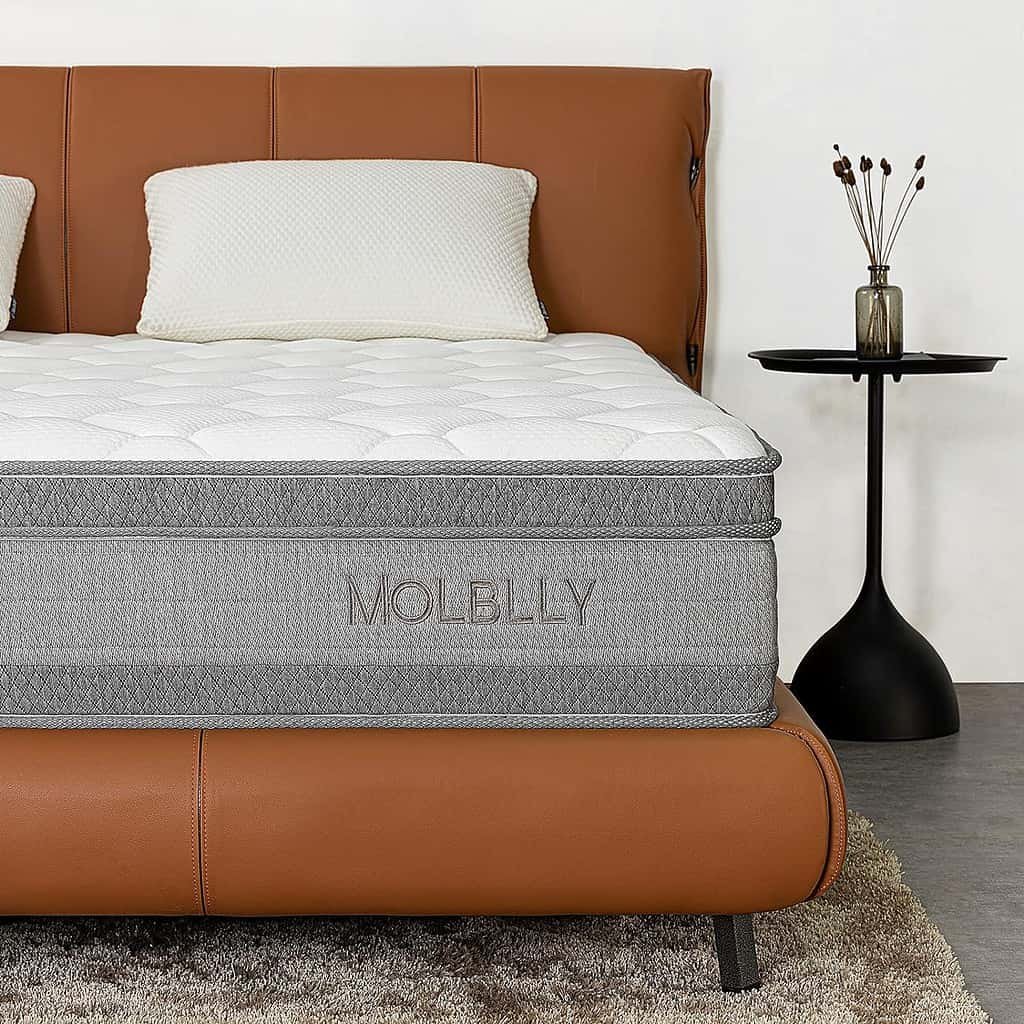How sleeping on the wrong mattress can cause back pain
If you’ve been struggling with back pain, you might be surprised to learn that your mattress could be to blame. Sleeping on the wrong mattress can cause or exacerbate back pain, so choosing a mattress that supports your spine and keeps you comfortable is essential. You must own a mattress that provides adequate support for your back. No mattress is perfect for everyone, so finding one that works for you is essential. If you have a history of back pain, speak with your doctor about what kind of mattress is best for you.
The wrong mattress can cause back pain
You may not think your mattress is essential to your spinal health, but it is. To understand how the mattress you sleep on can contribute to back pain, it’s helpful to know that different mattresses are designed to suit various body types. A mattress should provide the proper support to the back and shoulders. The amount of support required depends on the body type—for example, a mattress might be too firm for someone with a petite frame but just right for someone with a broader frame.
Several different types of mattresses are available on the market, so it’s essential to research them before purchasing. If you’re unsure where to start, ask your doctor for a referral to a qualified spine specialist. They will be able to assess your needs and recommend a mattress that will provide the proper support for your back.
A mattress that is too soft can cause the spine to curve
A mattress that is too soft can cause the spine to curve, leading to a condition known as back pain. This occurs when the mattress is not providing adequate support for the sleeper’s back, especially while they sleep on their side. For many people, this leads to nerve compression, resulting in pain in various body parts. The spine should be straight at night for the muscles and ligaments to rest comfortably and efficiently. Misalignment and soreness are more likely to occur when this doesn’t happen.
The reason a mattress must provide adequate support to the back is that the spine is made up of 33 vertebrae. In between these vertebrae are discs that act as shock absorbers. These discs can become damaged when not adequately supported, leading to pain.
A mattress that is too hard can cause the muscles to tense up and lead to pain
How you sleep—whether on your back, side or stomach—is a massive factor in determining the optimal firmness level of your mattress. For example, back sleepers need more give to align their spine correctly. Side sleepers need extra support in the hip and shoulder region to avoid sinking in too much and putting stress on those joints. Stomach sleeping may be ideal for some people; however, if this is the case for you, ensure your mattress has enough support to prevent your hips. Another important consideration when choosing a new bed is any existing health issues you have or certain sleeping positions that cause pain due to injury when you wake up each morning.
People with arthritis often experience painful flare-ups during the night from sleeping on a mattress that doesn’t provide enough pressure relief or sufficient support for their body weight. A hard mattress does not reduce joint pain; it only forces tense muscles to stay that way all night so they can’t relax and recover as they would with proper cushioning and contouring abilities. The wrong mattress can lead to back pain and worsen conditions such as arthritis. The result is a vicious cycle of pain that makes it difficult to get a good night’s sleep, leading to more pain during the day.
That’s why finding a mattress tailored to your specific needs is essential. Back pain can also be caused by sleeping on a mattress that is too old and has lost its support. It’s not always apparent that your mattress may cause back pain. You could sleep awkwardly and wake up with a stiff back. But to determine whether or not your mattress is causing you more harm than good, consider these factors:
- How old is your existing mattress?
- If you are over 8 years old, it’s time to shop for a new one. In the meantime, rotate it so you sleep on a different mattress section.
- How does it feel? Too Soft? Is it sagging?
- When you lie down on your back, do you feel like there are holes in the mattress?
- Can you feel springs or other parts digging into your skin? These can contribute to poor spinal alignment and discomfort from pressure points forming along the body’s heavier areas. If you answered yes to any of the above questions, it’s time for a new mattress. Finding one that is comfortable for you and supports your back needs is important.
To avoid back pain, it is essential to choose the right mattress and replace it every few years
The wrong mattress may increase your risk of back pain. A too-firm mattress will not let your shoulders and hips sink in enough to keep your spine aligned with the rest of your body. Conversely, a mattress that is too soft will cause you to sink in too much, creating further misalignment of the spine. Also, replacing your mattress every 5-7 years is important because the springs wear out over time and provide less support than when they were first purchased. Many good mattresses are on the market, but finding what’s right for you can be difficult. It will take you some time to find the perfect mattress, but it will be worth it when you wake up feeling refreshed and pain-free.
5 Tips when shopping for a new mattress
- Pay attention to the different types of materials used to construct the mattress. Some materials are better at relieving pressure than others.
- Make sure the mattress is the right size for your bed frame.
- Consider your sleeping positions – If you sleep on your side, look for a mattress that is softer in the middle and firmer around the edges. If you sleep on your back, look for a firmer mattress to support your lower back.
- Buy a mattress with a lengthy trial period.
- Get a professional opinion – A chiropractor or physiotherapist can help you find the right mattress.
When it comes to back pain, there is no one-size-fits-all solution. The best way to find relief is to experiment until you find what works. A good mattress is essential to relieving back pain but is not the only factor. If you are still experiencing pain after trying a new mattress, you must talk to your doctor about other potential causes and treatment options. You may have a more severe condition that requires medical intervention.
Pain is always a sign of something going on in the body
If you’re experiencing back pain, paying attention to your body and listening to what it tells you is important. Pain is always a sign that something is wrong and should never be ignored. If you’re concerned about your back pain, talk to your doctor.



